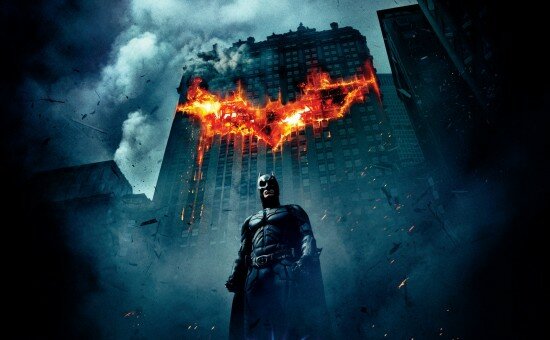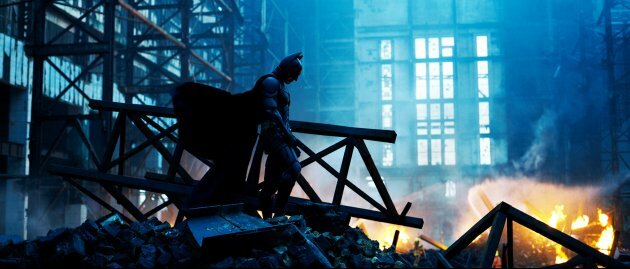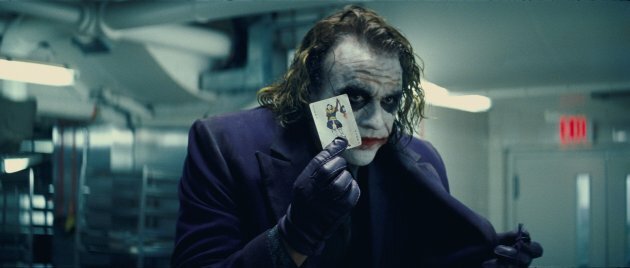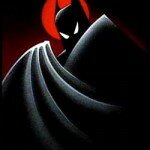“This town deserves a better class of criminal”, Heath Ledger’s Joker menacingly proclaims as he casually sets light to a monstrous mountain of money that ferociously burns to the ground, “…and I’m going to give it to them.”
This scene from the aptly titled The Dark Knight, the decidedly gloomy follow up to 2005’s relaunch of the Batman franchise, is indicative of the film on a whole. Let me clarify; with a spectacular array of action sequences alongside a star studded cast and crew, it’s not hard to see how such a grand project could be considered a gargantuan overindulgence even by Hollywood’s standards. Yet the man standing atop this mountain of money, the one responsible for igniting it, has made sure The Dark Knight is something much more than just an expensive summer blockbuster. In a film that is as breathtaking in its impeccable action as it is profound in its many societal observations, Christopher Nolan has made cinema goers everywhere realise that Hollywood deserves a better class of director. And by God, he’s given it to us.
Under Batman’s watch, the streets of Gotham are gradually being rid of the criminal underworld that once plagued the city. This does not occur without the help of District Attorney Harvey Dent (Aaron Eckhart), whose unyielding determination to clean up the city has become a beacon of hope for the people. So much so that Police Lieutenant James Gordon, Batman’s primary contact and trusted friend, asks Dent to help him perform a large operation to completely freeze the funds of the city’s mobsters. Dent also attracts the attention of billionaire Bruce Wayne (Christian Bale), not in the least because of Wayne’s long standing friendship with his new girlfriend Rachel Dawes (Maggie Gyllenhaal), but also to see if he could be the long awaited replacement to his Batman alter ego; a hero with a face that the city needs. However, the mob aren’t going down without a fight, and in desperation turn to a mysterious madman known only as The Joker (Heath Ledger), who offers to help dispose of the D.A. and the “Bat problem”. Yet his lunacy quickly becomes boundless and the trail of chaos and destruction he leaves in his wake causes many to question: just how safe is a city that allows a caped man to take the law into his own hands?
Note: The hidden section below (and only this section) contains spoilers and should only be read if you have seen the film. Click “Show” below to reveal the section.
[spoiler] Christopher Nolan and David S. Goyer have composed a story that perfectly underpins the importance of hope, leadership and honour in a post 9/11 world. The new depiction of Gotham City is not the otherworldly metropolis it has been in the past; it’s a city recognisable to us all. People live here, not comic book characters. People who look towards the modern superhero, the fearless few willing to face adversity front on and lead their people onward. In this sense, Harvey Dent is the Barack Obama of this story. The promise of a brighter future ensues hope; “the night is always darkest before the dawn”. Yet Nolan also explores the biggest threat to such a character: chaos and its power to corrupt, the binary opposite to order and honour. The Joker is the definitive terrorist of the story, a madman who commits acts of supreme destruction simply because he enjoys watching the world burn. Much like the unforeseen events of 9/11, The Joker comes out of nowhere. His lunacy is never truly explained nor does it need to be. He is a reminder that good only ceases to exist because evil does. However, more terrifying and disastrous than any act of a madman is the loss of hope in a time when it’s needed most. This is why The Dark Knight is film more about the fall of Harvey Dent, and his descent into madness at the hands of the Joker, than it is about the caped crusader.
[/spoiler]
.
The screenplay itself, written by Christopher Nolan and his brother Jonathan, is excellent at bringing the story of order vs. chaos to fruition. For some it might feel overlong and convoluted, certainly lacking the clear cut direction of 2005’s Batman Begins. Yet the narrative here is in its the message: without hope, chaos reigns as being the only justice. The shifting direction of the story still manages to feel natural by being indicative of the madness of the Joker, representing the anarchic society he is out to create. Without sounding cheesy, the dialogue is a bank of memorable quotes; from Harvey Dent’s foreshadowing adage, “You either die a hero, or see yourself become the villain”, to the disturbing truth behind the Joker’s own observation, “Madness, as you know, is like gravity. All it takes is a little push.”
Of course, the story succeeds only because of the impeccable cast, stellar production values and a director that continues to do no wrong. The return of Christian Bale’s more credible portrayal of Batman, despite not being the only focus of the film this time around, is as exciting and engaging as ever. Whether he’s billionaire playboy Bruce Wayne or the incorruptible Dark Knight himself, Bale completely inhabits his role. If any criticism can be made, it’s that Bale’s Batman is not as developed during the film as it was in the previous film. But if you want character development, go and re-watch Batman Begins; this film is more concerned with how the other characters of Gotham city interact with the masked hero.
Also returning from the 2005 franchise reboot is Gary Oldman as Lieutenant Gordon, excellently portraying the film’s most challenging character as the only reliable enforcer of justice in an equable role that doesn’t allow for caricatured extremes. Aaron Eckhart is perfectly cast as Harvey Dent, possessing the charisma and demeanor required to make his character’s inevitable decline believably tragic. Yet it goes without saying that the late Heath Ledger’s Joker is the undeniable star of the show. If Bale inhabited the role of Batman, then The Joker inhabited Ledger; it’s difficult to believe there is someone behind the cracked and disfigured face. His grotesque appearance, unnerving enunciation and menacing cackle will haunt you long after the credits have rolled. Whilst at first Ledger’s tragic death overshadowed my ability to be completely enthralled by his performance, a second viewing without the lingering reminder of the tragedy has left me unquestionably in awe of his ability that will be sorely missed.
Yet my highest accolades for the film will always be for its director; Christopher Nolan. I’m not shy of confessing my adoration for this man. My love for cinema was partially ignited by his modern noir masterpiece Memento, which I still regard as his best work. Without a bad film to his name, he continues his legacy here as Hollywood’s most reliable and exciting director. Whilst decidedly mastering the art of storytelling in his past works, The Dark Knight is Nolan’s declaration that he can do action, and do it very well. Every action sequence in the film somehow outdoes the last and leaves you completely breathless. Unlike most directors, he can make a scene infinitely exciting without the overuse of rapid editing or the shaky handheld camera trick. By following the action logically, he gives the audience the sense of being a part of the scene and allows for the brute rawness of events to captivate without resorting to cinematic trickery. It’s not as seamless as the amazing single camera sequences in Children of Men, but it’s certainly more exciting to watch than the over-edited action of Quantum of Solace or the painfully shaky camera that tainted the Bourne series.
Where possible, Nolan prefers not to resort to the use of CGI; explosions are actual explosions and crashes are actual crashes, and it’s all the more breathtaking for it. That hospital scene would not nearly be as remarkable to watch without the two distinctive elements of Nolan’s direction that I have stated above. Whilst the absence of a soundtrack in this scene works to heighten its impact, the tremendous score by Hans Zimmer and James Newton Howard underpins every other memorable scene, seamlessly shifting between heart thumping orchestral compositions and harrowing siren-like string sections. All things considered, it’s safe to assume that blockbuster movies — heck, movies full stop – don’t get much better than this.
Verdict:
Christopher Nolan not only delivers the definitive Batman film, he delivers the definitive action film while he’s at it. He has reminded us that summer blockbusters don’t have to be mindless action films; they can also be intricately woven commentators on modern society.
Chances are you’ve seen it already, but I highly recommend seeing The Dark Knight again on High Definition Blu-ray to get the complete experience. [rating: 5/5]
 Follow the author Anders Wotzke on Twitter.
Follow the author Anders Wotzke on Twitter.



















